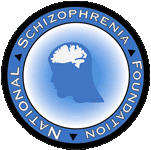What is Narcotics Anonymous?
Narcotics Anonymous (NA) is a support group for individuals struggling with drug addiction. Founded in the 1950s, NA has grown into a global network with over 70,000 meetings held across the world. The program is designed to help those affected by addiction regain control of their lives through a 12-step approach. It is a free, anonymous program that provides support and encouragement to individuals seeking to overcome drug addiction. Narcotics Anonymous NA meetings are available in various cities, including Chicago, where people come together to share their experiences and find mutual support.
What is Narcotics Anonymous?
Narcotics Anonymous (NA) is a support group for individuals struggling with drug addiction. It is available in cities across the United States and offers a free program with regular group meetings. NA was founded in the 1950s and has grown to over 70,000 meetings globally.
Meeting Locations and Times in Chicago
Chicago Service Office
Address: 924 W 38th Pl, Chicago, IL 60609
Meeting Times:
- Wednesday: 2:00 PM – 6:00 PM
- Saturday/Sunday: 12:00 PM – 4:00 PM
Methods/Details: Meetings at this location focus on providing a safe space for individuals to share their experiences and support each other in their journey to recovery.
Douglas Park Baptist Church
Address: 2650 S Lawndale Ave, Chicago, IL 60623
Meeting Times:
- Monday: 6:30 PM
Methods/Details: This location offers closed speaker and literature study meetings, providing a structured environment for participants to learn and grow together.
UE Hall
Address: 37 S Ashland Ave, Chicago, IL 60607
Meeting Times:
- Tuesday: 7:00 PM
Methods/Details: Meetings at UE Hall include open step study sessions, allowing members to work through the 12-step program in a supportive group setting.
The 12 Steps of NA
Narcotics Anonymous follows a 12-step program that aims to help individuals struggling with addiction find personal growth and recovery. Each step serves as a guide for self-reflection, accountability, and positive change.
- We admitted we were powerless over our addiction – that our lives had become unmanageable.
Recognizing the impact addiction has on one’s life is the first step toward healing. - Came to believe that a Power greater than ourselves could restore us to sanity.
Participants find strength in a higher power to help them recover. - Made a decision to turn our will and our lives over to the care of God as we understood Him.
Members commit to trusting in a higher power to guide their recovery journey. - Made a searching and fearless moral inventory of ourselves.
Individuals reflect on their past actions and behaviors to understand their addiction. - Admitted to God, to ourselves, and to another human being the exact nature of our wrongs.
Sharing one’s flaws and mistakes with others promotes self-awareness and healing. - Were entirely ready to have God remove all these defects of character.
Members prepare themselves to let go of negative traits and embrace change. - Humbly asked Him to remove our shortcomings.
Individuals seek help in overcoming their personal shortcomings and addictive behaviors. - Made a list of all persons we had harmed and became willing to make amends to them all.
Acknowledging those harmed by one’s actions is essential for repairing relationships. - Made direct amends to such people wherever possible, except when to do so would injure them or others.
Rebuilding trust and seeking forgiveness is a key part of recovery. - Continued to take personal inventory and when we were wrong promptly admitted it.
Ongoing self-assessment helps individuals stay accountable in their recovery journey. - Sought through prayer and meditation to improve our conscious contact with God as we understood Him, praying only for knowledge of His will for us and the power to carry that out.
Spiritual practices are incorporated to maintain clarity and focus on recovery. - Having had a spiritual awakening as the result of these steps, we tried to carry this message to addicts, and to practice these principles in all our affairs.
Individuals who have found recovery share their experiences to help others and live by the principles of the 12 steps.
Getting Started with NA in Chicago
To begin your recovery journey with Narcotics Anonymous (NA) in Chicago, the meeting search tool on methadone.org can help you find local meetings in your area. The website provides a comprehensive list of meetings, allowing you to easily locate both in-person and online/virtual meetings, which are available in many places.
- Search for meetings by location
- Choose between in-person and virtual meetings
- Access meeting times and formats
These options give you flexibility in choosing a meeting that fits your schedule and preferences, whether you’re looking for face-to-face support or prefer online meetings for convenience.
Attending Your First Local NA Meeting
When attending your first NA meeting in Chicago, it’s important to understand the different types of meetings available.
Open vs Closed Meetings
| Meeting Type | Description |
|---|---|
| Open | Open to anyone, including non-members, family, and friends. |
| Closed | Only for those who identify as having an addiction or who are seeking recovery. |
Tips for First-Time Attendees
- Arrive early to get settled and introduce yourself as a new member.
- Share your experiences if you’re comfortable, but it’s not required.
- Receive a welcome keychain tag during your first meeting as a symbol of your commitment to recovery.
Keychain Tag Milestones
- 30 days
- 60 days
- 1 year
- Beyond
These keychain tags mark your progress and milestones in your recovery journey, helping you celebrate achievements along the way.
